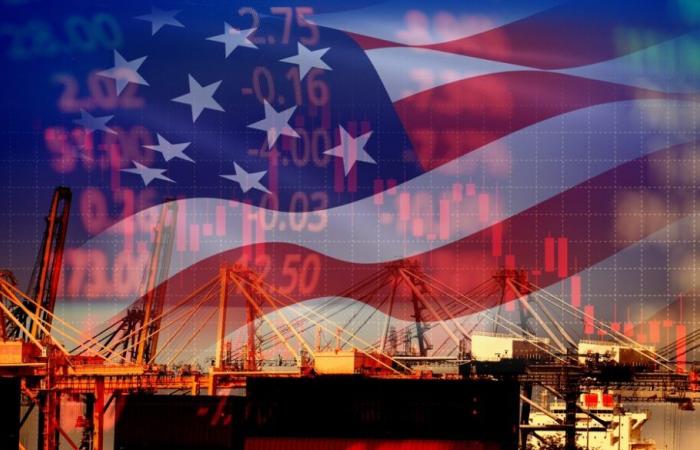President-elect Donald Trump, who will begin his second term on January 20, 2025, has sparked concern in many countries by promising to impose a “universal” customs duty 10 or 20% on all imports into the United States, and even 25% on products from Canada and Mexico (the United States’ leading trading partner in 2024). An additional tax of 10% or more could also be applied to products from China. A 100% duty for all BRICS has even been mentioned!
Reindustrialization or inflation?
According to the president-elect, these measures have both a political objective (to put pressure on certain countries) and an economic objective (to fight against the industrial and commercial decline of the United States).
On the macroeconomic level, an indiscriminate increase in customs duties — concerning both products manufactured in the United States and others for which there is no producer in the country — would be an original experiment to say the least.
« An increase in customs duties would lead to an appreciation of the dollar which would cancel out the gain in competitiveness », predicts Sylvain Bersinger, chief economist at Asterèsin a note published in November. In the short term, therefore, neither reindustrialization nor reduction of the trade deficit can be expected.
The increase in duties would also lead to rising consumer prices (due to the increase in the price of imported goods or products manufactured in the country at a higher price than imports) which would lead the Fed to increase its rates, and therefore to make investments in dollars more attractive.
In practice, a possible reindustrialization of the United States will first require major investments. On this subject, a targeted increase in rights could be useful, but certainly not the only lever.
Disruption of supply chains?
The effect of these duty increases on supply chains will largely depend on their level and geography. On this subject, Donald Trump’s statements have often varied.
Since Donald Trump’s first term, the American economy and the Chinese economy have already started a certain decoupling. The duties put in place by the last two administrations have accelerated the movement to diversify supplies. South Asia and Mexico were the main beneficiaries of this movement.
Still, U.S. companies with complex cross-border logistics — such as chemicals and cosmetics — could face significant cost increases, particularly if high tariffs are imposed in Mexico.
But in the short term, there will be no relocation in the many segments (such as packaging) where there are no or few American suppliers. Indeed, moving supply to new countries is far from simple and can take at least five years, especially when new factories are needed.
For several years, many of our interlocutors have predicted a regionalization of supply chains. The biggest players have therefore chosen to be present on several continents. Although there are few global suppliers in the cosmetics sector, many are present on both sides of the Atlantic.
Slowdown in international trade
More difficult access to the American market would result in a decline in international trade, which would be amplified if the Chinese economy plunged further into crisis. It could reach 0.3% to 3%, depending on the level and geographic extent of the new customs duties and the extent of the retaliation.
The reorganization of world trade could benefit the BRICS group, which Indonesia has just joined. With the possible exception of China.
The signing of the free trade treaty between the European Union and the Mercosur could thus open up new outlets for both areas. For the European cosmetics industry, a market like Brazil offers enormous growth potential. But the environmental cost is also likely to be gigantic.
Because if the election of Donald Trump was one of the notable events of 2024, it is also almost certain that last year was the hottest ever recorded for the planet.






